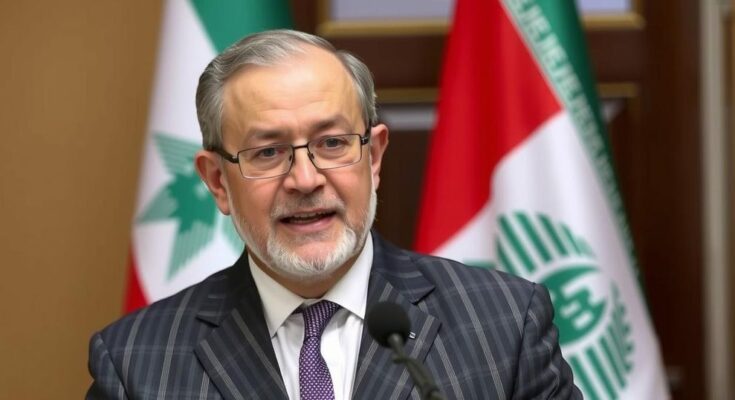Syria’s new leader, Ahmed al-Sharaa, has pledged not to negatively interfere in Lebanon, indicating a commitment to respect its sovereignty. He has initiated dialogues with Turkey and Saudi Arabia to bolster regional relations post-Assad. The Druze community in Lebanon, represented by Walid Jumblatt, highlights the historical tensions stemming from previous Syrian dominance, while the international community remains focused on supporting stability and minority protections in Syria.
In the aftermath of Ahmed al-Sharaa’s rise to power following a decisive offensive, he has initiated regional engagements aimed at reassuring neighboring Lebanon. During a recent meeting, Sharaa committed to refraining from any negative interference in Lebanon’s affairs, emphasizing the importance of respecting its sovereignty and unity. His administration’s willingness to adopt a neutral stance in Lebanese matters marks a significant shift, especially considering Syria’s historical influence over its neighbor.
Sharaa’s interactions extend to high-level discussions with Turkish officials, particularly Foreign Minister Hakan Fidan, highlighting Turkey’s ongoing support for the new Syrian leadership and its ties with the Islamist faction Hayat Tahrir al-Sham. Saudi Arabia has similarly begun establishing direct lines of communication with Sharaa’s government, indicating a broader regional recalibration post-Assad. At a meeting with prominent Lebanese Druze leaders, Sharaa reiterated Syria’s intent to distance itself from past practices that have sown discord in Lebanon.
The legacy of Syrian military involvement in Lebanon, which lasted nearly three decades until 2005, is not overlooked. The Druze community, represented by figures such as Walid Jumblatt, has longstanding grievances due to past Syrian actions, including the assassination of Jumblatt’s father. Despite these tensions, there is cautious optimism regarding Sharaa’s leadership and potential for improved bilateral relations with Lebanon. International stakeholders continue to engage with Syria’s new government, emphasizing the need for inclusive governance and security against extremism.
Syria’s political landscape has undergone a dramatic transformation following the fall of Bashar al-Assad, a shift that could reshape its relations with neighboring countries, particularly Lebanon. For years, Syria exerted significant influence in Lebanon, a legacy marked by a heavy military presence and allegations of interference in internal politics. The ascendance of Ahmed al-Sharaa, leading the Islamist faction Hayat Tahrir al-Sham, has prompted regional actors to reassess their strategies towards both Syria and Lebanon. Sharaa’s leadership represents the Sunni Islamists’ shift, raising concerns about stability but also the potential for a new era in regional dynamics, especially considering Turkey’s backing and Saudi Arabia’s interest in rebuilding ties.
Ahmed al-Sharaa’s vow to respect Lebanon’s sovereignty and avoid negative interference signifies a pivotal moment in Syrian-Lebanese relations. With regional powers like Turkey and Saudi Arabia engaging with the new Syrian leadership, there is a possibility for a more stable and cooperative geopolitical environment. However, historical grievances and the legacy of past Syrian involvement in Lebanon remain significant challenges that could hinder long-term reconciliation and stability.
Original Source: www.hindustantimes.com




